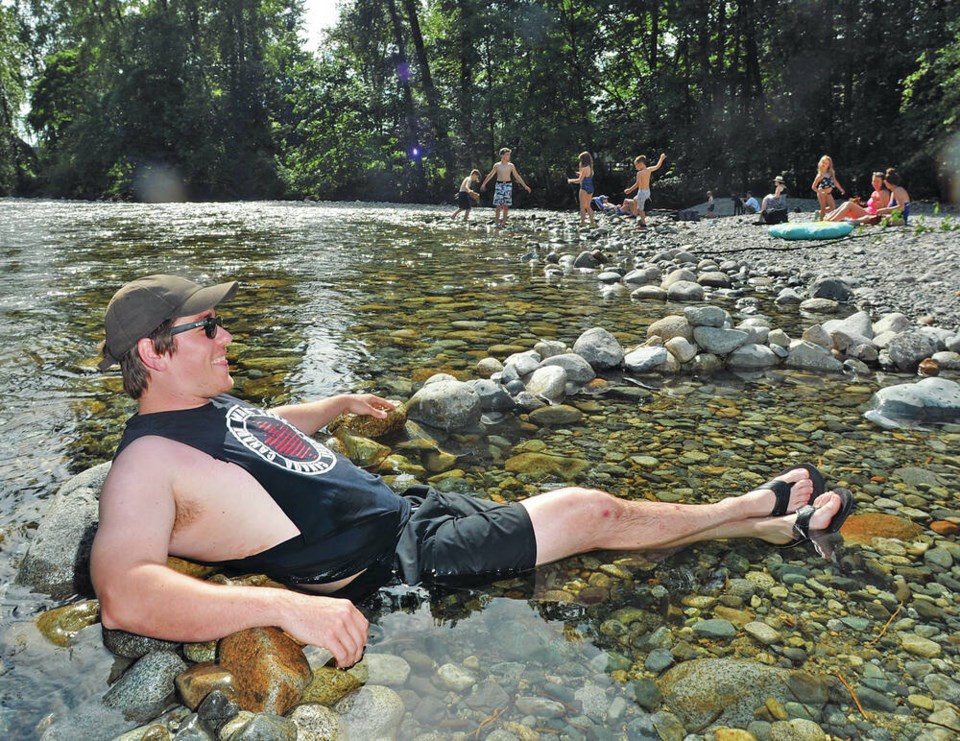The North Shore missed breaking high temperature records by half a degree on Wednesday, but there was still plenty of heat to go around.
The thermometer at Environment Canada’s West Vancouver weather station hit 31.2℃ on Aug. 17 – just shy of the 31.7-degree record set in 2012. Overnight lows were also decidedly balmy at 17.9 degrees.
By early afternoon on Thursday, the temperature had climbed again to 27, but wasn’t expected to break any records, said Doug Lundquist, meteorologist with Environment Canada.
Temperatures are expected to moderate on Friday and remain that way through to around Wednesday of next week. Daytime highs then are expected to remain in the mid-20s, said Lundquist.
Environment Canada issued a heat warning earlier this week for all of Metro Vancouver for Wednesday and Thursday, pointing to a ridge of high pressure that’s brought temperatures of up to the low 30s to many areas of the south Coast, while overnight lows have hovered between 16 and 18 degrees.
Seven communities on the south Coast broke temperature records Wednesday, including Comox, Courtenay, Gibsons, Sechelt, the Malahat, Pemberton and Lillooet – which reached 38.2 degrees.
Following a wet June, the summer has been a warm one, said Lundquist, with seven days in July hitting temperatures above 30 degrees on the North Shore. The hottest day so far was July 26 when the West Vancouver weather station registered a high of 34 degrees.
But so far, temperatures haven’t reached anywhere near the criteria for an “extreme heat emergency” like the 2021 heat dome.
Vancouver Coastal Health warned this week’s high temperatures could impact those at particular risk for heat illness, including seniors, young children, pregnant women, people with chronic illness and those working or exercising outdoors.
High indoor temperatures pose the most risk to health, according to VCH, urging residents to check on vulnerable family members and neighbours.
On the North Shore, local municipalities have encouraged those seeking a place to cool off to visit shady areas of local parks, splash parks and misting stations as well as air-conditioned public buildings including libraries and community centres.
The District of West Vancouver added that pets in carriers are also permitted in community centres.
Temperatures in September on the south coast are expected to remain warmer than average said Lundquist, although it’s unlikely highs will hit the temperatures recorded in July and August.


